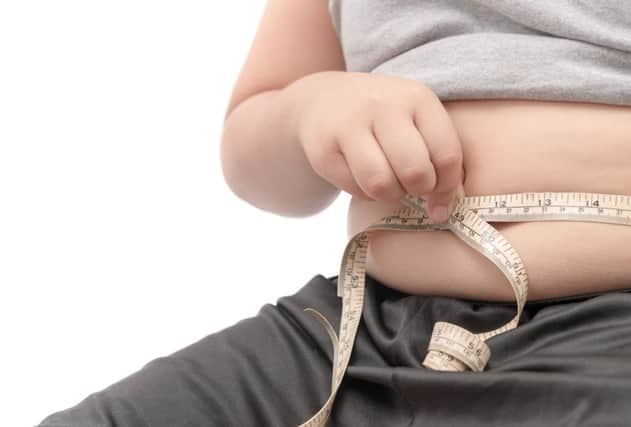Giving young kids big meals later in day increases long-term weight risk, study suggests
This article contains affiliate links. We may earn a small commission on items purchased through this article, but that does not affect our editorial judgement.


Experts found that making lunch and dinner more calorie-dense had an impact on weight even years later.
Researchers from the University of Porto in Portugal presented their data, which has been peer-reviewed by conference officials, at the European Congress on Obesity in Glasgow.
Advertisement
Hide AdAdvertisement
Hide AdThey looked at a sample of 1,961 children and analysed three-day food diaries at age four, before examining weight at age seven.
Factors that may affect the results, such as a mother’s age and education, were taken into account.
The research concluded that “having a relatively higher energy intake at lunch and supper or at mid-afternoon at four-years-old was associated with higher odds of developing overweight/obesity at seven-years-old”.
They also found that a relatively higher intake of fat at lunch increased the risk of a child being overweight or obese at age seven by 17%.
The team warned that skipping breakfast and eating later in the day could have a detrimental effect on children’s body weight.
They concluded: “Considering all daily eating occasions, a higher proportion of energy and macronutrient intake at the main meals and a lower proportion during the afternoon and evening events seems to be more beneficial for children’s weight.
“These results emphasise the important role of the daily food intake rhythm on excessive weight gain in childhood.”
Professor Russell Viner, president of the Royal College of Paediatrics and Child Health (RCPCH), said: “With one in three children overweight or obese by the time they start primary school, this useful research provides additional insight into factors that could be contributing to the UK’s obesity crisis.
Advertisement
Hide AdAdvertisement
Hide Ad“However, whilst this information is important for good child health, so too is a balanced diet and regular exercise.
“Appropriate portion sizes and a varied diet combined with at least one hour’s exercise a day is the best way of maintaining a healthy weight now and in the future.”
Tam Fry, chairman of the National Obesity Forum, said: “The advice to breakfast like a king, lunch like a prince and dine like a pauper has stood the test of time for good reason.
“Starting your child’s day with as regal a spread as you can muster, and giving them less at lunch and supper is, despite arguments to the contrary, better for them nutritionally.
“After at least 10 hours of sleep, the body needs a good fuelling at the start of the day and not at the end when there is significantly less time to burn off excess calories from supper before bedtime.
“The body hangs on to the unexpended calories and, bingo, you have the makings of unwanted weight gain.”